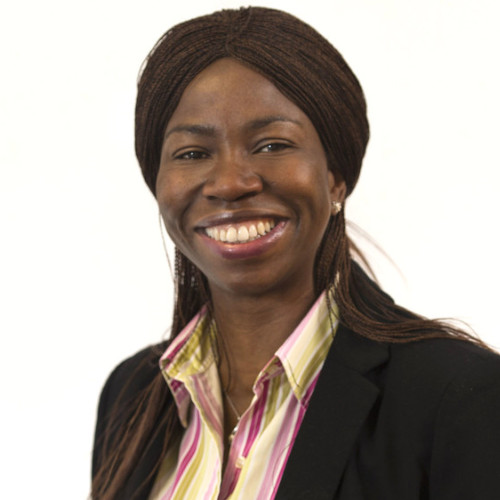Speakers and panel announced for the NIA Fellows 2023/24 launch event

This interactive evening of discussion and networking will bring together health and care leaders, and industry experts to consider how innovation can support the delivery of NHS Long Term Plan priorities and help to improve the care of those people who need help most.
Taking place at The Royal College of Surgeons of England, confirmed speakers on the night include Amanda Pritchard (Chief Executive, NHS England), Professor Bola Owolabi (Director, Healthcare Inequalities at NHS England), Sir Stephen Powis (National Medical Director, NHS England) and Konrad Dobschuetz (National Director, NIA).
The panel discussion will feature James Somauroo (CEO, SomX), Paulina Cecula (Co-Founde, Dama Health), Min Lee (Co-Founder, Humin), and Malone Mukwende (Founder, BlackandBrownSkin).
I’m thrilled to be joined at our launch event by such a rich selection of industry experts and health care leaders. This level of support underlines the importance of supporting exceptional individuals with promising innovations across England’s NHS for greater patient, staff and system benefit.
Konrad Dobschuetz, National Director of the NHS Innovation Accelerator
Tickets for this event are now sold out.
The NIA is an award-winning NHS England initiative commissioned by the Accelerated Access Collaborative, hosted by UCLPartners and delivered in partnership with the 15 Academic Health Science Networks (AHSNs).
Speakers

Amanda Pritchard, Chief Executive, NHS England
Amanda Pritchard is Chief Executive Officer (CEO) of NHS England, which leads the NHS’ work nationally to improve health and ensure high quality care for all. She is also accountable to Parliament for the NHS’ £150 billion of annual funding. Her prior role was NHS England and NHS Improvement’s Chief Operating Officer (COO) and NHS Improvement’s Chief Executive.

Professor Bola Owolabi, Director, Healthcare Inequalities at NHS England
Dr Bola Owolabi MB BS DFFP MRCGP MSc is Director – Health Inequalities at NHS England. She works as a General Practitioner in the Midlands. Bola has interests in reducing health inequalities through Integrated Care Models, Service Transformation and using data and insights for Quality Improvement. Bola has held various leadership roles at local, system and national levels. She was until recently, National Specialty Advisor for Older People and Integrated Person Centred-Care at NHS England where she led the Anticipatory Care Workstream of the National Ageing Well Programme.

Sir Stephen Powis, National Medical Director, NHS England
Stephen has been National Medical Director of NHS England since 2018. He is also Professor of Renal Medicine at University College London. Stephen was appointed Interim NHS Improvement Chief Executive Officer on 3 August 2021. Previously he was Medical Director (and latterly Group Chief Medical Officer) of the Royal Free London NHS Foundation Trust from 2006 to 2018.

Konrad Dobschuetz, National Director, NIA
Konrad is National Director for the NHS Innovation Accelerator. He is also Chief Enterprise Officer for UCLPartners and leads on strategic enterprise, industry partnerships and digital health.
Prior to joining the NIA, Konrad worked for Novartis, where he was Head of Customer Solutions, Digital & Health Innovation and BIOME UK. He has a track record of successfully on-boarding start-ups as well as creating strategic frameworks for innovation enablement. During his time leading Novartis Biome UK, Konrad supported multiple innovations and real-world evaluations in more than 70 NHS sites.
Panellists

James Somauroo – CEO, SomX
James is the cofounder and CEO of SomX, a healthtech and biotech-specific communications group. He also hosts The Healthtech Podcast, which has listeners in over 120 countries and is the Editor-In-Chief of Healthtech Pigeon, a newsletter and podcast that rounds up the sector’s news.
He is an anaesthetics and ICU doctor by training, has held roles in leadership, management and innovation at NHS England, Health Education England and the British Medical Journal and previously directed two healthtech startup accelerators. He has degrees in medicine, biomedical sciences and education and is a guest lecturer on healthtech innovation and entrepreneurship at academic institutions around the world.

Min Lee – Co-Founder, Humin
Min is the co-founder of Humin and a tech project manager at NHS England. At age 14, she battled the eating disorder bulimia. After developing a purpose in mental health, she went on to study neuroscience and mental health at Imperial College London and helped an innovative company to bring psychedelic treatments for depression.
Humin has a big vision to make mental health personalised, preventative and precise. Min’s first focus is to support people with depression and bipolar disorder with a passive mood tracker app. She believes that with ethical design, we can empower our self-care with digital devices.

Paulina Cecula – Co-Founder, Dama Health
Paulina is co-founder of Dama Health and an FY1 NHS Junior at Imperial College Healthcare NHS Trust. Paulina studied medicine with a Management BSc at Imperial College London where she researches the use of AI to improve patient flow on acute units. Dama Health is an early-stage company on a mission to personalise reproductive health prescribing, starting with contraception.
Paulina has spoken at various events about medtech, startups, balancing work and startups, females in involvement in the startup world and mentored medical students.

Malone Mukwende – Founder, BlackandBrownSkin
Malone is an award-winning medical student, co-author of Mind the Gap a clinical handbook of signs and symptoms in Black and Brown Skin. The handbook has revolutionized the healthcare space reaching over 400,000 people in more than 140 countries. Mind the Gap and Malone have been featured in many press outlets such as TIME, ELLE magazines, in the House of Lords, Good Morning America and The Washington Post.
Malone is also the founder of BlackandBrownSkin, a company focusing on empowering, educating, and providing a voice to black and brown communities in healthcare.